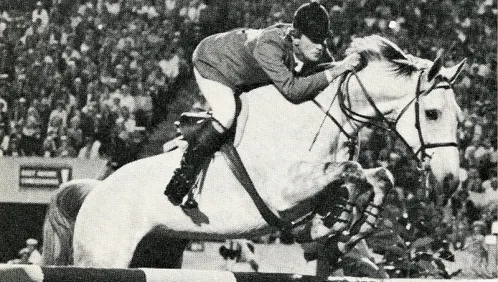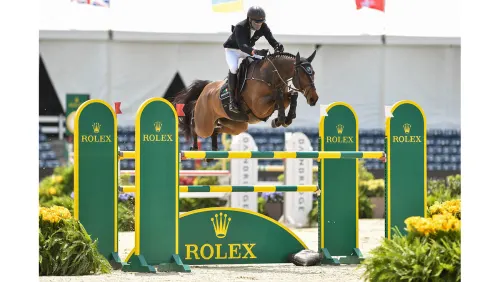After three days of the U.S. Equestrian Federation Annual Meeting in Louisville, Ky., the word in the meeting rooms and hallways today, Jan. 15, is “compromise.”
The primary controversy here in Louisville, Ky., is the proposed rule to limit therapeutic non-steroidal anti-inflammatory drug use from the current allowable two NSAIDs to one; the USEF Equine Drugs and Medications Committee proposed the rule change, which drew heated debate at the U.S. Hunter Jumper Association Annual Meeting in December but hardly a blip at the earlier U.S. Dressage Federation and U.S. Eventing Association meetings.
At the USHJA meeting, a second rule-change proposal from the USHJA Open Hunter Task Force was supported by the USHJA Board of Directors. The USHJA rule proposal allows for two NSAIDs to be in a horse’s system providing that one of the substances has been reported on a Federation Drugs and Medications report.
Here at the USEF Meeting it appears a compromise is in the works, which as of today, has been approved by the Drugs And Medications Committee, Veterinary Committee and the Executive Committee, among others, and has strong support from the breeds and disciplines. The rule change proposal will ultimately face a vote during the USEF Board of Directors meeting on Sunday.
Details include:
- Beginning Dec. 1, 2011, only one NSAID will be permitted.
- From April 1, 2010 to Nov. 30, 2011, two NSAIDs will be permitted. If a horse receives two NSAIDs, a USEF NSAID disclosure form must be filled out and filed for data collection.
- Failure to fill out the form will result in a warning through 2010 (estimated time frame).
- Failure to fill out the form will result in an administrative penalty in 2011 (estimated time frame).
“In 2010 it’s all about educating the membership, releasing information and the results of studies in layman’s terms,” said USHJA President Bill Moroney. “We want to be proactive on education. Collecting the data will alert the membership and keep the NSAID changes on the front page.”
USEF President David O’Connor thanked Dr. Kent Allen and his committees for the 12 years of work they’d put forth on therapeutic NSAID use.
ADVERTISEMENT
“It will ultimately have an effect on the whole industry,” said O’Connor. “It’s an opportunity for the different breeds and disciplines to reassess what they’re doing. We’re used to the system we have, and it’s time to change and move on. It’s a very good move for the industry. We may have some abstain [during the BOD vote], but my bet is that it’s a unanimous vote.”
Cultural changes may be afoot as well, and the revelations drew some nods of support from committee members as well as meeting attendees. Now that fewer NSAIDs are allowed, perhaps horsemen would choose to take their horses in fewer classes per day and fewer competitions per year, resulting in pressure to change qualifying criteria, improve footing standards, etc.
O’Connor quoted a person from an earlier meeting during a playful moment, “I know there’s supposed to be a level playing field, but does the playing field have to be as hard as it is?”
Members of the High Performance Working Group, including Chairman Armand Leone Jr., were thrilled with the possibility of the new NSAID rule change going through. He noted that the United States is now moving one step closer to the Fédération Equestre Internationale’s current no-tolerance policy.
“I’m very supportive of this rule change,” he said. “To the extent that the national rules will be closer to the international rules. We do a disservice to our athletes competing internationally in their training and selection and competitiveness internationally when the rules are so different.”
He also said with the USEF working toward the goal of having the FEI allow limited therapeutic NSAID use, this change in the national system comes at a good time. “Being more consistent gives us more credibility,” he said.














